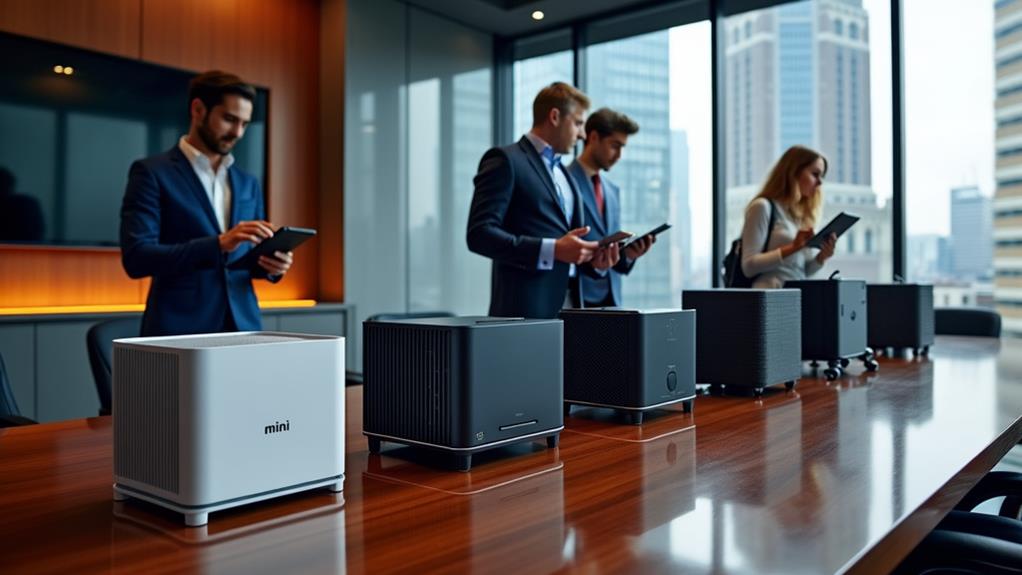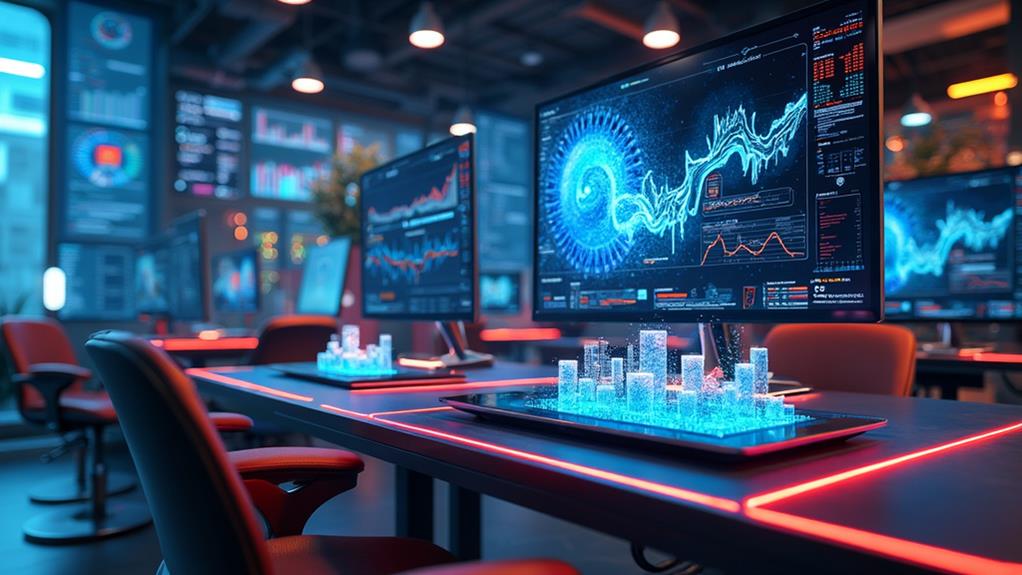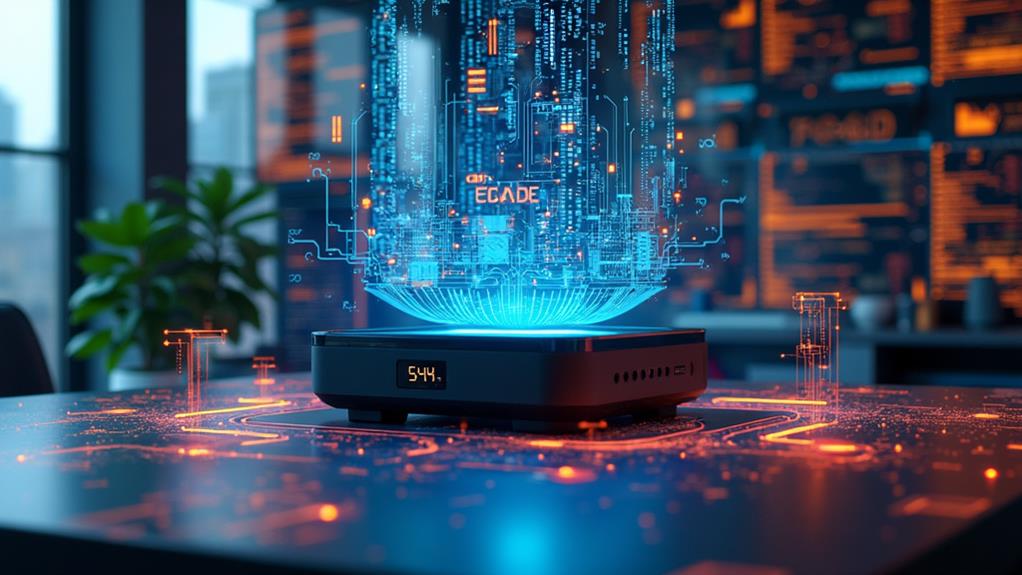
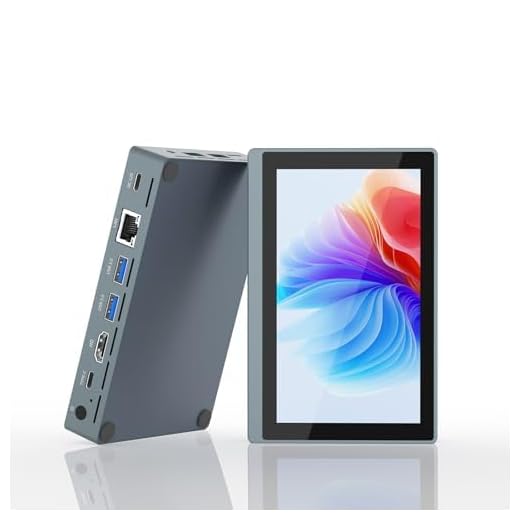


Imagine the convenience of a device that combines the power and functionality of a laptop with the compactness and portability of a mini PC. With technology constantly evolving, this question has become increasingly relevant: are mini PCs capable of delivering the same level of performance as laptops? In this article, we will explore the pros and cons of mini PCs compared to laptops, shedding light on their features, capabilities, and ultimately helping you decide which option is best for your needs. Get ready to uncover the world of mini PCs and discover whether they have what it takes to compete with their larger counterparts.

Performance
Processing power
When it comes to processing power, mini PCs and laptops can offer similar performance capabilities. However, it is important to consider the specific specifications and components of each device. Mini PCs often come with processors that are comparable to those found in laptops, such as Intel Core i5 or i7. Therefore, you can expect efficient processing power from a mini PC, allowing you to smoothly run various tasks and applications.
Graphical capabilities
Mini PCs typically include integrated graphics cards, which can handle everyday tasks with ease. However, if you’re someone who needs powerful graphics capabilities for gaming or graphic-intensive work, a dedicated graphics card found in laptops might be a better choice. Laptops, especially those designed for gaming or creative work, often come with high-performance graphics cards that can handle demanding tasks and provide better visual quality.
Multitasking
Both mini PCs and laptops have the ability to handle multitasking to varying degrees. The performance of a mini PC or laptop largely depends on factors such as the processor, RAM, and storage capacity. With an adequate amount of RAM, a mini PC can handle multitasking seamlessly, allowing you to switch between multiple applications without any lag. Similarly, laptops with sufficient RAM and processing power can offer a smooth multitasking experience. However, it’s worth noting that some high-end laptops may provide a slight advantage in multitasking capabilities.
Portability
Size and weight
When it comes to portability, mini PCs are generally more compact and lightweight compared to laptops. Mini PCs are designed to be easily transported and can often fit into small spaces, making them a great choice for individuals who are always on the go or have limited desk space. On the other hand, laptops are more convenient for individuals who need a complete computing solution in one portable package.
Battery life
Battery life is an important consideration when choosing between a mini PC and a laptop. Laptops generally have built-in batteries that provide a sufficient amount of power to keep your device running for several hours, depending on the specific model and usage. In contrast, mini PCs often require a separate power source and typically do not have built-in batteries. This means that their usage is limited to areas with access to power outlets. Therefore, if you require a device that you can use for an extended period of time without being plugged in, a laptop may be a more suitable option.
Configuration
Expandability
Both mini PCs and laptops offer varying levels of expandability. Mini PCs often have limited expansion options due to their compact nature, but some models do offer additional slots for RAM, storage, or even dedicated graphics cards. Laptops, on the other hand, may have more expansion options, such as additional RAM slots, storage upgrade options, or the ability to connect external devices via USB ports or expansion slots.
Upgradability
Similarly, both mini PCs and laptops offer different levels of upgradability. Upgrading components in a mini PC can be a bit trickier due to their smaller form factor, but it is still possible to upgrade certain components like RAM or storage. Laptops, on the other hand, often have more options for upgrading various components such as RAM, storage, or even the processor, depending on the model. However, it’s important to note that not all laptops are easily upgradable, as some models may have components that are soldered to the motherboard, making upgrades more difficult or impossible.
Operating System
Compatibility
When it comes to operating systems, both mini PCs and laptops offer compatibility with popular options such as Windows, macOS, and Linux. However, it’s important to ensure that the specific model you choose supports your preferred operating system. While most laptops come pre-installed with an operating system, mini PCs often allow you to choose the operating system you want to install, giving you more flexibility in terms of compatibility.
User interface
The user interface of mini PCs and laptops can vary depending on the operating system and the specific model. Laptops generally come with a built-in keyboard and trackpad, allowing for easy navigation and interaction with the device. Mini PCs, on the other hand, often require external peripherals such as a keyboard and mouse for input. While this allows for customization and flexibility in terms of input devices, it may require additional investment in peripherals.
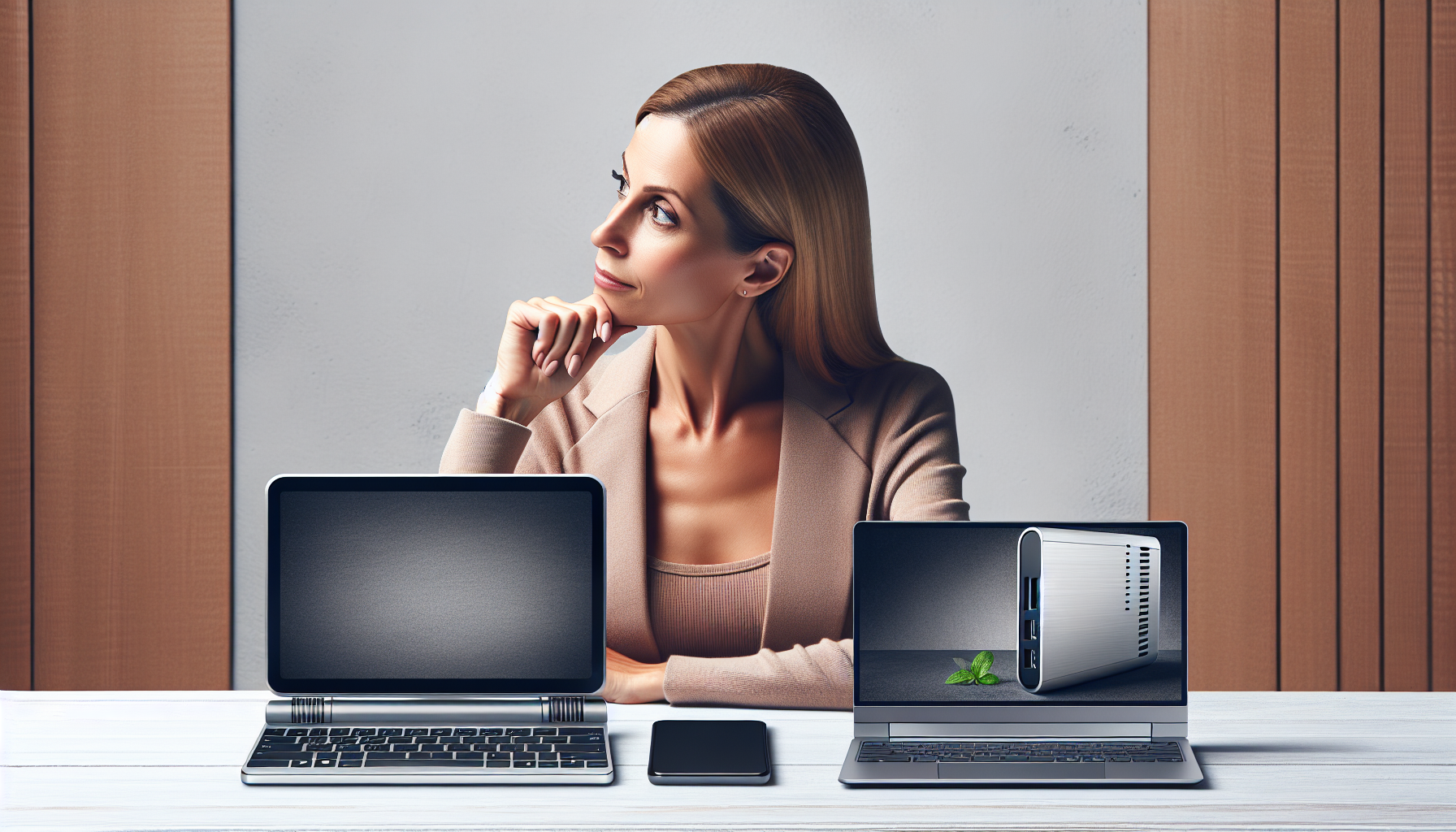
Connectivity
USB ports
Both mini PCs and laptops typically come equipped with USB ports, allowing you to connect various external devices such as printers, external hard drives, or USB flash drives. The number and type of USB ports may vary depending on the specific model. It’s important to consider the number and type of USB ports you require for your specific needs when choosing between a mini PC and a laptop.
HDMI output
HDMI output is another important connectivity feature to consider. Mini PCs and laptops often come with HDMI ports, allowing you to connect external displays or projectors for larger screen viewing. This can be particularly useful for presentations, gaming, or watching multimedia content.
Wireless connectivity
Both mini PCs and laptops typically offer wireless connectivity options such as Wi-Fi and Bluetooth. Wi-Fi allows you to connect to the internet wirelessly, providing you with the freedom to work or browse the web from anywhere within range of a Wi-Fi network. Bluetooth, on the other hand, enables wireless communication with other devices such as headphones, speakers, or input devices. It’s important to ensure that the mini PC or laptop you choose has the necessary wireless connectivity options to meet your needs.
Storage
Storage capacity
When it comes to storage capacity, both mini PCs and laptops offer varying options. Mini PCs often come with limited onboard storage, especially if they have a smaller form factor. However, many mini PCs allow for additional storage to be added in the form of external hard drives or solid-state drives (SSDs). Laptops, on the other hand, often offer built-in storage options ranging from smaller capacity HDDs to larger capacity SSDs. The choice between a mini PC and a laptop largely depends on your specific storage needs.
Solid State Drive (SSD) vs Hard Disk Drive (HDD)
The type of storage used in a mini PC or laptop can have a significant impact on performance. SSDs are generally faster than traditional HDDs, offering faster boot times, quicker application launches, and snappier overall performance. However, SSDs are typically more expensive and may offer less storage capacity compared to HDDs. HDDs, on the other hand, provide larger storage capacities at a more affordable price point but come with slower read and write speeds. It’s important to consider your storage requirements and budget when choosing between an SSD and an HDD.
Display
Screen size
Both mini PCs and laptops come in a variety of screen sizes, allowing you to choose the one that best suits your needs. Mini PCs often do not come with built-in displays, which means you have the flexibility to connect them to different monitors or TVs with different screen sizes. Laptops, on the other hand, come with a built-in display of a specific size, which may range from smaller sizes for increased portability to larger sizes for enhanced viewing experiences. The choice between a mini PC and a laptop largely depends on your preference for display size and flexibility.
Resolution
Resolution is another important factor to consider when it comes to the display of a mini PC or a laptop. Both mini PCs and laptops offer a range of display resolutions, including HD (1366×768), Full HD (1920×1080), and even higher resolutions such as 4K (3840×2160). The choice of resolution depends on your specific needs and preferences, such as the quality of graphics and the level of detail required for your work, gaming, or multimedia consumption.
Keyboard and Mouse
Ergonomics
The comfort and ergonomics of the keyboard and mouse are important considerations for both mini PCs and laptops. Laptops come with built-in keyboards and trackpads, which are typically designed to be compact to fit the size of the device. However, some users may find the smaller keyboard and trackpad less comfortable for extended use. In contrast, mini PCs require separate keyboards and mice, allowing for customization and the ability to choose devices that offer better ergonomics for your specific needs.
Wireless options
Both mini PCs and laptops offer wireless options for keyboards and mice. Many laptops come with built-in Bluetooth connectivity, allowing you to easily connect wireless peripherals. Mini PCs, on the other hand, often require additional peripherals such as wireless keyboards and mice to be purchased separately. The choice between a mini PC and a laptop depends on your preference for wireless options and the level of customization you require for your input devices.
Price
Cost comparison
When it comes to price, mini PCs and laptops can vary significantly depending on the specific model and specifications. Mini PCs generally offer more budget-friendly options, especially for those who already have a monitor, keyboard, and mouse. They can be a cost-effective choice for individuals who want to upgrade their existing setup without purchasing a complete package. Laptops, on the other hand, provide a convenient all-in-one solution but may come with a higher price tag, especially for models with higher specifications or dedicated graphics cards.
Value for money
The value for money factor depends on your specific needs and preferences. Mini PCs provide great value for individuals who prioritize customization, portability, and flexibility, as they allow you to choose peripherals and tailor your setup according to your requirements. Laptops, on the other hand, provide value for those seeking a portable and convenient computing solution with a built-in display, keyboard, and trackpad. The value for money ultimately depends on how well the chosen device meets your specific needs and budget.
Specialized Features
Gaming capabilities
If you’re a gaming enthusiast, you may be wondering whether a mini PC or a laptop is a better choice. Laptops designed specifically for gaming often come with dedicated graphics cards, powerful processors, and high-refresh-rate displays, providing an immersive gaming experience. However, mini PCs can also be a viable option for gaming, especially if you pair them with an external graphics card and connect them to a high-resolution monitor or TV. Mini PCs offer the advantage of customization, allowing you to upgrade the graphics card or other components to enhance gaming performance.
Media center functionality
Both mini PCs and laptops can also serve as media centers, allowing you to stream movies, TV shows, or videos on a larger display. Mini PCs, in particular, can be easily connected to a TV or projector, providing a comprehensive media center experience. Some mini PC models even come with built-in media center software or support for popular streaming services, making it easy to access your favorite content. Laptops, on the other hand, provide a more portable media center experience, allowing you to enjoy multimedia content on the go.
In conclusion, both mini PCs and laptops have their advantages and disadvantages depending on your specific needs and preferences. Mini PCs offer customization, portability, and flexibility, making them a great choice for individuals who already have peripherals and want to tailor their setup to their specific requirements. Laptops, on the other hand, provide a complete package with a built-in display, keyboard, and trackpad, making them convenient for users who need a portable computing solution. It’s important to consider factors such as performance, portability, configuration options, operating system compatibility, connectivity, storage, display, keyboard and mouse ergonomics, price, and specialized features such as gaming capabilities or media center functionality when making a decision between a mini PC and a laptop. Ultimately, it’s all about finding the device that best suits your needs and provides the most value for your money.
Disclosure: As an Amazon Associate, I earn from qualifying purchases.



